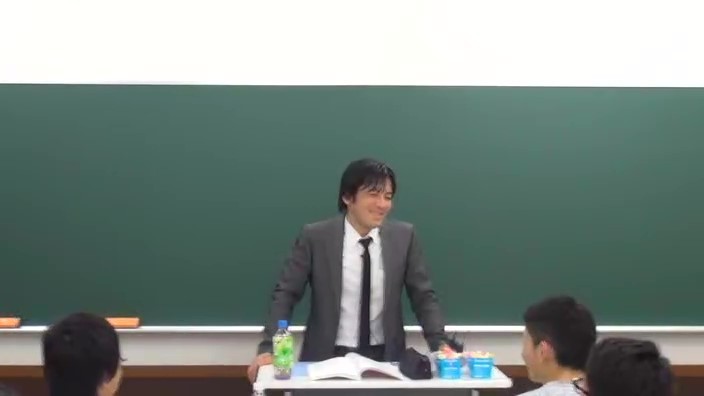永久(とわ)に残る奇跡の日米国歌斉唱:★ 本田美奈子 ★ 歌詞&和訳&解説 ★ 動画
本記事は独学・国内学習による
英検1級保持者が書きました。
【準動詞】とは次の4つの総称です。
〈不定詞〉
〈動名詞〉
〈分詞〉
〈分詞構文〉
これらは《句》と呼ばれる意味のカタマリを作り、
その先頭に立ちます。
《句》は S V を含まない意味のカタマリで、
文中で次の3個のハタラキをします。
《名詞句》 : S/O/C/前置詞の目的語
《形容詞句》: 名詞を修飾/C
《副詞句》 : 名詞以外を修飾して常にM
今回は準動詞が名詞句を作る構造に焦点を当てます。
堅苦しく言えば〈準動詞の形容詞的用法〉となります。
具体的には次の背景色を付けた部分が今回の焦点です。
Ⅰ)《名詞句》 :〈不定詞〉〈動名詞〉
Ⅱ)《形容詞句》:〈不定詞〉〈分詞〉
Ⅲ)《副詞句》 :〈不定詞〉〈分詞構文〉
Ⅰ)《名詞句》 :〈to do〉〈doing〉
Ⅱ)《形容詞句》:〈to do〉〈doing/done〉
Ⅲ)《副詞句》 :〈to do〉〈doing/done〉
このように〈準動詞〉を〈品詞〉を軸に考えることで,
読解・英作文に使える実戦的な文法知識が身につきます。
Did you know Nebraska is a state whose name comes from an India word ( ) “river in the flatness”?
① means
② the meaning of
③ meaning
④ in meant
文意から空所以下が直前名詞 an India word の修飾と考えられる。
③以外の形が直前の名詞を修飾することはない。
an India word which means …
➪ an India word meaning …
正解:③
「ネブラスカ州の名前はインデアンの言葉 “river in the flatness” に由来するのを知ってましたか」
Did you know Nebraska is a state whose name comes from an India word meaning “river in the flatness”?
Did you know Nebraska is a state whose name is derived from an Indian term signifying "river in the flatness"?
Nebraska, a state, gets its name from an Indian word that translates to "river in the flatness."
Were you aware that Nebraska's name originates from an indigenous word meaning "river in the flatness"?
He seems ( ) a very popular actor when he was young.
① to be
② to have been
③ he was
④ he has been
現在時制 seems と過去時制 was に注目。
完了不定詞<to have done>を用いて
主文の動詞が表す時点よりも前のことを表す。
書き換えると,
It seems that he was a very popular actor when he was young.
語法的に次の形は取れないために③ he wasは失格。
誤:He seems that SV
◆ 完了不定詞<to have done>
☆ <同時>
It seems that he is ill.
=He seems to be ill.
☆ <seemsより前>
It seems that he was ill.
=He seems to have been ill.
☆ <同時>
It seemed that he was ill.
=He seemed to be ill.
☆ <seemedより前>
It seemed that he had been ill.
=He seemed to have been ill.
正解:②
「彼は若いころ,とても人気がある俳優だったようだ」
He seems to have beena very popular actor when he was young.
He appears to have enjoyed considerable popularity as an actor during his youth.
It seems he was quite a celebrated actor in his younger days.
During his youth, it seems he was a highly popular actor.
【参考】
問題文のように現在時制と完了不定詞〈to have done〉
が併用された場合に完了不定詞が表す可能性として
1.「過去」
2.「現在完了」
の2つがあり,その決定は普通文脈による。
ここではwhen he was から「過去」を表す。
次の文では for two weeks から to have been を
述語動詞 seems と同時の「現在完了」と解する。
Mary seems to have been sick for two weeks.
=It seems that Mary has been sick for two weeks.
It seems that he has finished his work.
=He seems to have finished his work.
また,不定詞の基本形が未来を示すこともある。
It is likely that he will win the scholarship.
=He is likely to win the scholarship.
We looked everywhere but the thief was nowhere ( ).
① having seen
② seeing
③ to be seen
④ to see
Not a soul was to be seen on the street.
=Not a soul was visible on the street.
解釈の際<be to不定詞>を用法分類する
必要はない。
<be+to do>
で文字通り
「これから ~ する状態にある」
を原義とし,文脈に応じて訳を微調整すれば良い。
『be to不定詞構文』
⑴《予定》
「~する予定である」
She is to get married in June.
*未来を表す語と併用
⑵《義務》
「~すべきだ」
You are to start as soon as possible.
⑶《可能》
「~できる」
No one was to be seen in the street.
*be to be done の形で用いる
⑷《意図》
「~するつもり」
If you are to see him, you will have to wait.
*if S be to do」で用いる
⑸《運命》
「~する運命である」
She was never to see him again.
正解:③
「我々はあらゆる所をさがしたが泥棒は見つからなかった」
We looked everywhere but the thief was nowhere to be seen.
Despite searching everywhere, the thief remained elusive and couldn't be spotted.
We scoured every possible place, yet the thief managed to evade sight completely.
Our search efforts were exhaustive, but the thief remained unseen.
The two main roads from Osaka to Kobe are open, but the Hanshin Expressway remains ( ).
① to close
② close
③ closing
④ closed
SVC 構造の C に分詞を入れる問題 は,
V をbe 動詞に置き換えて態を確認する。
✰ S V C (=分詞)
➪〔分詞の意味上の主語=S〕
✰ S V O C (=分詞)
➪〔分詞の意味上の主語=O〕
正解:④
「大阪,神戸間の2つの主要道路が開通しているが阪神高速は閉鎖されている」
The two main roads from Osaka to Kobe are open, but the Hanshin Expressway remains closed.
While the main roads from Osaka to Kobe are accessible, the Hanshin Expressway remains shut.
The Hanshin Expressway, unlike the two primary routes from Osaka to Kobe, remains inaccessible.
Though the main roads connecting Osaka to Kobe are open, the Hanshin Expressway stays closed.
⒜ S V C
(分詞)「~しながら」
come, stand, sit, lie
Young girls sat surrounding him.
He sat surrounded by young girls.
⒝ S V C(分詞)
be, seem, look, keep, remain, feel
The baby kept crying all night.
They looked satisfied with the result.
⒞ S V doing「~しに行く」
go shopping, go swimming, go skating, go skiing, go fishing
We went swimming at Lake Biwa last Saturday.
The fees listed after each course description ( ) directly to the instructor at the first meeting.
① are to be paid
② are to pay
③ is being paid
④ is paying
《be to不定詞構文》〔義務〕
このような第3者的命令を示す用法は
規則書や掲示によく見られる。
また,
<be to 不定詞>の受動形は《be to be done》となる。
<be to不定詞>の用法で共通して言えるのは
「意味的に主語の意志を含まない」こと。
正解:①
「それぞれのコース説明の後に記載されている料金は初回ミーティング時に直接インストラクターにお支払い願います」
The fees listed after each course description are to be paid directly to the instructor at the first meeting.
Payment for the listed course fees is to be made directly to the instructor during the initial meeting.
At the first meeting, students are expected to directly pay the fees mentioned for each course to the instructor.
These fees, as described for each course, are to be handed over to the instructor during the first meeting.
The explorers had been lost in the desert for days and the lights of the village made them feel ( ) and happy.
① to relieve
② relieve
③ relieved
④ relieving
the lights of the village(S) made(V) them(O) feel ( ) and happy.(C)
の構造を捉える。
SVOC の C に分詞を入れる問題は
OとCとの関係のみで決定する。
ここは, they feel[are]relieved
の受動関係を確認する。
✰ O C = 能動関係 ➪ doing
✰ O C = 受動関係 ➪ done
SVOC の C に分詞を入れる問題では
O が「する」のか「される」のかのみを考える
正解:③
「探検隊は砂漠で遭難していたが村の明かりで彼らはほっとして幸せになった」
The explorers had been lost in the desert for days and the lights of the village made them feel relievedand happy.
The sight of village lights brought relief and happiness to the explorers who had been lost in the desert for days.
After days of being lost in the desert, the sight of village lights brought immense relief and joy to the explorers.
The explorers, lost for days in the desert, felt a wave of relief and happiness upon spotting the village lights.
There are six letters ( ) today.
① for being written
② to be written
③ to write with
④ to write on
《There are ~ 》の構造なので
手紙を書くのが誰なのか明確ではない。
letters を意味 上の主語にした
six letters to be written
を想定する。
文脈上で手紙を書くのが
"I '"
であることが明らかな場合は
six letters to write
でも可。
There is[are]+名詞のこういった文では
不定詞は to do と to be done の形どちらも可。
正解:②
「今日書かなければならない手紙が6通ある」
There are six letters to be written today.
There are six letters that need to be written today.
Today requires the writing of six letters.
A total of six letters must be written before the day ends.
I was so ( ) I fell asleep before the film ended.
① bored
② boring
③ bore
④ boreded
bore「人を退屈させる」〈他動詞〉
Don't bore people with your problems.
(自分の悩み事で人をうんざりさせてはいけないよ)
Oh, sorry. I'm boring you with my story, aren't I?
(あ,ごめん。こんな話,退屈よね)
a boring lecture
(人を退屈させる講義 → 退屈な授業)
ここでは《so … that ~ 》構文の that の省略。
正解:①
「とても退屈だったので映画が終わらないうちに眠り込んでいた」
I was so bored I fell asleep before the film ended.
I was so uninterested that I fell asleep before the film concluded.
My boredom reached a point where I dozed off before the movie ended.
I found the film so dull that I fell asleep before it finished.
The news of the destruction of the Soviet Union was ( ) us.
① very surprised at
② much surprised to
③ very surprising to
④ much surprising at
〈原因〉surprise〈人〉「〈人〉を驚かす」〔他動詞〕
〈人〉is surprised at〈原因〉
〈原因〉is surprising to〈人〉
Her beauty surprised them all.
(彼女美しさに皆驚いた)
I was surprised at learning the truth.
(私は真相を知って驚いた)
〔〈人〉+ (be) done+前置詞 〕の前置詞は
一個ずつ覚えていくしかない。
動詞の意味によって,およそ次のように分類可。
✰ 〔驚き〕surprised/astonished ➪ at
✰ 〔満足〕satisfied /pleased ➪ with
✰ 〔関心〕concerned/preoccupied ➪ with
✰ 〔関心〕interested/absorbed ➪ in
正解:③
「ソビエト連邦の崩壊のニュースは我々をたいへん驚かした」
The news of the destruction of the Soviet Union was very surprising to us.
The news of the Soviet Union's dissolution came as a tremendous surprise to us.
The sudden collapse of the Soviet Union was incredibly shocking to us.
We were greatly taken aback by the news of the Soviet Union's disintegration.
You cannot make ( ) if they don’t want to.
① people learn
② people to learn
③ people learning
④ that people learn
make O do 「Oに(強制的に)~ させる」(=force O to do)
✰ C=(to) do〔不定詞〕
➪「Oが ~ する」《能動関係》
✰ C=doing 〔現在分詞〕
➪「Oが ~ している」《能動関係》
✰ C=done 〔過去分詞〕
➪「Oが ~ される / されている」《受動関係》
または例外的に「Oが ~ してしまった」〈完了〉
正解:①
「学びたくないと思っている人をむりにさせることはできない」
You cannot make people learn if they don’t want to.
Learning cannot be forced upon individuals who lack the desire to learn.
People cannot be compelled to learn if they lack the willingness to do so.
If individuals don't have the inclination to learn, you cannot force them to do so.
【音読基本英文】

「ネブラスカ州の名前はインデアンの言葉 “river in the flatness” に由来するのを知ってましたか」
Did you know Nebraska is a state whose name comes from an India word meaning “river in the flatness”?
Did you know Nebraska is a state whose name is derived from an Indian term signifying "river in the flatness"?
Nebraska, a state, gets its name from an Indian word that translates to "river in the flatness."
Were you aware that Nebraska's name originates from an indigenous word meaning "river in the flatness"?
「彼は若いころ,とても人気がある俳優だったようだ」
He seems to have beena very popular actor when he was young.
He appears to have enjoyed considerable popularity as an actor during his youth.
It seems he was quite a celebrated actor in his younger days.
During his youth, it seems he was a highly popular actor.
「我々はあらゆる所をさがしたが泥棒は見つからなかった」
We looked everywhere but the thief was nowhere to be seen.
Despite searching everywhere, the thief remained elusive and couldn't be spotted.
We scoured every possible place, yet the thief managed to evade sight completely.
Our search efforts were exhaustive, but the thief remained unseen.
「大阪,神戸間の2つの主要道路が開通しているが阪神高速は閉鎖されている」
The two main roads from Osaka to Kobe are open, but the Hanshin Expressway remains closed.
While the main roads from Osaka to Kobe are accessible, the Hanshin Expressway remains shut.
The Hanshin Expressway, unlike the two primary routes from Osaka to Kobe, remains inaccessible.
Though the main roads connecting Osaka to Kobe are open, the Hanshin Expressway stays closed.
「それぞれのコース説明の後に記載されている料金は初回ミーティング時に直接インストラクターにお支払い願います」
The fees listed after each course description are to be paid directly to the instructor at the first meeting.
Payment for the listed course fees is to be made directly to the instructor during the initial meeting.
At the first meeting, students are expected to directly pay the fees mentioned for each course to the instructor.
These fees, as described for each course, are to be handed over to the instructor during the first meeting.
「探検隊は砂漠で遭難していたが村の明かりで彼らはほっとして幸せになった」
The explorers had been lost in the desert for days and the lights of the village made them feel relievedand happy.
The sight of village lights brought relief and happiness to the explorers who had been lost in the desert for days.
After days of being lost in the desert, the sight of village lights brought immense relief and joy to the explorers.
The explorers, lost for days in the desert, felt a wave of relief and happiness upon spotting the village lights.
「今日書かなければならない手紙が6通ある」
There are six letters to be written today.
There are six letters that need to be written today.
Today requires the writing of six letters.
A total of six letters must be written before the day ends.
「とても退屈だったので映画が終わらないうちに眠り込んでいた」
I was so bored I fell asleep before the film ended.
I was so uninterested that I fell asleep before the film concluded.
My boredom reached a point where I dozed off before the movie ended.
I found the film so dull that I fell asleep before it finished.
「ソビエト連邦の崩壊のニュースは我々をたいへん驚かした」
The news of the destruction of the Soviet Union was very surprising to us.
The news of the Soviet Union's dissolution came as a tremendous surprise to us.
The sudden collapse of the Soviet Union was incredibly shocking to us.
We were greatly taken aback by the news of the Soviet Union's disintegration.
「学びたくないと思っている人をむりにさせることはできない」
You cannot make people learn if they don’t want to.
Learning cannot be forced upon individuals who lack the desire to learn.
People cannot be compelled to learn if they lack the willingness to do so.
If individuals don't have the inclination to learn, you cannot force them to do so.
【不定詞】要点整理
(to do …) = (名詞句) or (形容詞句) or (副詞句)
✰ 名詞用法 ➪ S/O/Cとして機能する
✰ 形容詞用法 ➪ 前の名詞を修飾
✰ 副詞用法 ➪ 上記以外の全て
1 . 名詞用法
S/O/Cになる (前置詞の目的語は不可)
(1) To know oneself is difficult.
自分自身を知ることは難しい。
(2) It is necessary to have a good sleep.
十分に睡眠をとることが必要です。
(3) All I can do is to sing for you.
私にできることは,あなたのために歌うことだけです。
(4) I decided to go on to college.
私は大学に進学することにした。
疑問詞+to do・whether+to do
(1) What to do is an important question.
何をすべきかが重要な問題だ。
(2) How to begin is more difficult than where to stop.
どう始めるかということはどこでやめるかということより難しい。
(3) Please tell me which bus to take.
どちらのバスに乗るべきか私に教えてください。
(4) I don't know whether to trust him or not.
彼を信用すべきかどうか,私にはわからない。
2 .形容詞用法
名 ← to do
(1) I have no friends to help me.
私には助けてくれる友達がいない。
(2) He lent me a book to read.
彼は私に読む本を貸してくれた。
(3) We need a house to live in.
私たちには住む家が必要だ。
3 .副詞用法
❶ 目的
(1) We eat to live, not live to eat.
私たちは生きるために食べるのであり,食べるために生きるのではない。
(2) He studied hard in order to pass the examination.
彼は試験に合格するように一生懸命に勉強した。
(3) He hurried to the station so as to catch the last train.
彼は最終列車に間に合うように駅へと急いだ。
*〔目的〕を明示する時には,in order to, so as to
❷ (感情の)原因・理由
★直前に < 感情 > を示す語が出現
(1) I am sorry to hear that you were hurt in the accident.
その事故でけがをされたそうでお気の毒に思っています。
(2) I am very glad to see you.
お目にかかれてとても嬉しいです。
❸ (判断の)根拠
★直前に < 判断 > を表す表現が出現
(1) You must be crazy to go out in this stormy weather.
こんな悪天候に出て行くなんて,君は頭がおかしいに違いない。
(2) What a fool I am to have missed the chance !
そのチャンスを逃したなんて,私はなんて馬鹿なんだろう。
★判断を表す語には助動詞のmust, cannotがある。
感嘆文が使われることも多い
❹ 限定・程度
(1) This book is difficult to read.
この本は読むには難しい。
(2) This book is too difficult to read.
= It is difficult to read this book.
この本は読むにはあまりにも難しすぎる。
▸ この本は難しすぎて読めない
(3) You are old enough to see its meaning.
=You are so old as to see its meaning
君はその意味がわかるのにじゅうぶん年をとっている。
▸ わかってもいい年頃だ。
(4) She was so kind as to help me.
=She was kind enough to help me.
彼女は私を助けてくれるほど十分親切だ。
▸ 親切にも私を助けてくれた。
❺ 結果
(1) He awoke to find the house on fire.
彼は目を覚ますと家が火事になっていることに気づいた。
(2) The boy grew up to be a fine gentleman.
その少年は大きくなって立派な紳士になった。
(3) My grandmother lived to be ninety years old.
私の祖母は90歳まで生きました。
(4) He tried only to fail.
彼は挑戦したが,失敗した。
(5) He went over to India, never to return.
彼はインドに渡って,二度と戻って来なかった。
☆ awake to ~ :目を覚ますと~
☆ wake up to ~:目を覚ますと~
☆ grow up to ~: 成長して~
☆ live to be ~:~になるまで生きる
☆ … only to ~:…したが結局…
☆ … never to ~:…して二度と~
❻ 条件 〔仮定法〕
(1) To hear him speak English, you would take him for an American.
彼が英語を話すのを聞けば,彼をアメリカ人だと思うだろう。
(2) It would be wiser to leave it unsaid.
それは言わないでおいたほうが賢明だろう。
❼ 独立不定詞
(1) To tell the truth, she died three days ago.
実を言うと,彼女は3年前に死んだのですよ
(2) To make matters worse, her child became sick.
さらに悪いことには,彼女の子供が病気になった
(3) You are, so to speak, a fish out of water.
君はいわば陸に上がった魚のようなものだ
(4) To begin with, beat two eggs in a bowl.
まず始めに,卵を2つボールの中でかき混ぜます
その他の独立不定詞
☆ to say nothing of ~:~は言うまでもなく
☆ not to mention ~:~は言うまでもなく
☆ not to speak of ~:~は言うまでもなく
☆ strange to say:奇妙なことに
☆ to be sure:確かに
☆ to make a long story short:かいつまんで言うと
☆ to be brief:手短かに言え
< be to 構文 >
(1)〔予定〕
「~することになっている」*時間・場所の表現が出現
(2)〔意図〕
「~するつもりだ・~したい」*if節中が多い
(3)〔必要・義務〕
「~しなければならない」
(4)〔可能〕
「~できる」*受動態が多い
(5)〔運命〕
「~する運命だ」*過去形が多い
(1) John and I are to meet at the station at six.
ジョンと私は6時に駅で会うことになっている。
➪ John and I are going to meet at the station at six.
(2) If you are to succeed, you must work harder.
成功したいなら,君はもっと勉強しなければならない。
➪ If you want to succeed, you must work harder.
(3) You are not to smoke in this room.
この部屋ではタバコを吸ってはいけない
➪ You must not smoke in this room.
➪ You should not smoke in this room.
(4) He was never to see his mother again.
彼は再び母親に会うことのない運命にあった。
➪ He was destined never to see his mother again.
(5) The camera was not to be found.
そのカメラは見つからなかった
➪ The camera couldn't be found.
4 . 〈to have done〉完了不定詞
❑ 不定詞 <to do> ➪ Vと同じ時制を表す
❑ 完了不定詞 <to have done> ➪ Vより1つ前の時制表す
(1) He seems to be ill.
= It seems that he is ill.
彼は病気らしい。
(2) He seems to have been ill.
= It seems that he was [has been] ill.
彼は病気だったらしい。
(3) He seemed to be ill.
= It seemed that he was ill.
彼は病気であるように思われた。
(4) He seemed to have been ill.
= It seemed that he had been ill.
彼は病気をしていたように思われた。
= He is said to have been rich when he was young.
= It is said that he was rich when he was young.
彼は若いころ金持ちだったそうだ。
(5) She was said to have been the most beautiful lady in the town.
= They said that she had been the most beautiful lady in the town.
彼女は町で一番の美人だったそうだ
◇ 意味上の主語
⑴ 意味上の主語が一般の人 ➪ 表さない
⑵ It is 形 for A to do ➪ A
⑶ It is 形 of〈人〉to do ➪ 〈人〉
⑷ S V O to do ➪ O
⑸ S V to do ➪ S
⑹ S V O 形容詞用法のto do ➪ 直前の名詞(O)
(1) It is important to learn English.
英語を勉強することは重要だ。
(2) It is important for Taro to learn English.
太郎が英語を勉強することは重要だ。
(3) It is kind of you to show me around the town.
町をあちこち案内してもらってありがとうございます。
(4) My mother told me to eat more vegetables.
=My mother told me that I should eat more vegetables.
母は私にもっと野菜を食べるようにと言った。
(5) I have decided to major on economics in college.
私は大学で経済学を専攻することに決心した。
⑹ She is not a person to deceive to others.
彼女は他人を騙すような人ではない。
◇ 不定詞のみを目的語にとる動詞
・wish(~したいと思う)
・hope(~したいと思う)
・desire(~したいと思う)
・plan(~するつもりである),
・seek(~しようとする)
・attempt(~しようとする)
・manage(何とか~する)
・pretend(~するふりをする)
・afford(~する余裕がある)
・fail(~しない)
・mean(~するつもりである)
・expect(~するつもりである)
・decide(~することに決める)
・determine(~することに決める)
・promise(~すると約束する)
・refuse(~することを拒む)
・learn(~できるようになる)
◇ S V O to do (一般的な第5文型動詞)
✰ O C=能動関係 ➪ <V + O + to do>
✰ O C=受動関係 ➪ <V + O + to be done>
〔願 望〕like, want, desire
〔要 求〕ask, request, require
〔許 可〕 allow (許す), permit (許す)
〔強 制〕compel (強いる), force (強いる), oblige (義務づける)
〔命 令〕order (命令する), tell
〔勧 告〕 persuade (説得する), urge (駆り立てる), advise (忠告する)
〔認 識〕 think, consider, believe
〔期 待〕 expect
〔原 因〕 cause, lead
〔可 能〕 enable
【動名詞】要点整理
〔動名詞〕:
doing 形で名詞のハタラキ(S,O,C,前置詞の目的語)をする
(1) Reading in bed is not good for the eyes.
ベッドで読書することは目によくない。
(2) It is fun watching birds in the woods.
森の中で鳥を見ることは楽しい。
(3) My hobby is listening to music.
私の趣味は音楽を聴くことです。
(4) I like eating oranges, but dislike peeling them.
私はオレンジを食べることは好きだが,皮をむくことは嫌いだ。
(5) The doctor insisted on operating on the patient.
その医者は,その患者の手術をすると言ってきかなかった。
1 動名詞の意味上の主語
〈所有格〉か〈目的格〉を動名詞の前に置く
(a) He insisted on paying the money.
彼はお金を支払うことを主張した。
(a’) He insisted on my paying the money.
=He insisted that I should pay the money.
彼は私がお金を支払うべきだと主張した。
(b) Would you mind opening the door?
あなたはドアを開けることを気にしますか。
(b’) Would you mind my opening the door?
あなたは私がドアを開けることを気にしますか。
2 <to+doing>
☆ look forward to doing(〜することを楽しみに待つ)
☆ be used to doing(〜するのに慣れている)
☆ be accustomed to doing(〜するのに慣れている)
☆ What do you say to doing ...?(〜するのはどうですか)
☆ with a view to doing(〜する目的で)
☆ when it comes to doing(〜するということになると)
☆ come near to doing(危うく〜しそうになる)
3. 慣用表現
✰ cannot help doing (= cannot but do)
「〜せざるをえない」
I cannot but admire his courage.
=I cannot help admiring his courage.
私は彼の勇気に感心せざるをえない。
✰ How about doing …?
「〜するのはどうですか」
How about going for a walk?
=What do you say (to) going for a walk?
散歩に行くのはどうですか。
✰ There is no doing (= It is impossible to ...)
「〜することはできない」
We cannot say whether he will come.
=There is no saying whether he will come.
彼が来るかどうかわからない。
✰ worth doing
「〜する価値がある」
This book is worth reading twice.
=It is worth while to read this book twice.
この本は二度は読む価値がある。
✰ It goes without saying that S V
「言うまでもなく」(= Needless to say)
It is needless to say that honesty is the best policy.
=It goes without saying that honesty is the best policy.
正直は最良の策なのは言うまでもない。
✰ on doing (= as soon as S V)
「〜するとすぐに」
As soon as I heard the news, I rushed to the scene.
=On hearing the news, I rushed to the scene.
その知らせを聞くとすぐに,私は現場へ急いだ。
✰ Be careful in doing
「〜する時に気をつけて」
Be careful when you cross the street.
=Be careful in crossing the street.
通りを渡るときには,気をつけなさい。
✰ feel like doing (= feel inclined to do)
「〜したい気がする」
I don't feel like attending the party.
パーティーに出たい気がしない。
✰ have trouble[difficulty / a hard time](in) doing
「〜することに苦労する」
I had a lot of trouble (in) persuading him to go.
私は彼を説得するのに苦労した。
4 〈SV to do〉&〈SV doing〉
◆ 動名詞のみを目的語にとる動詞
・enjoy(〜して楽しむ)
・finish(〜するのを終える)
・mind(〜するのをいやがる)
・avoid(〜するのを避ける)
・escape(〜するのを逃れる)
・miss(〜しそこなう)
・complete(〜するのを仕上げる)
・quit(〜するのをやめる)
・give up(〜するのをやめる)
・admit(〜するのを認める)
・deny(〜しないと言う)
・put off(〜するのを延期する)
・postpone(〜するのを延期する)
◆ 不定詞のみを目的語にとる動詞
・wish(〜したいと思う)
・hope(〜したいと思う)
・desire(〜したいと思う)
・plan(〜するつもりである),
・seek(〜しようとする)
・attempt(〜しようとする)
・manage(何とか〜する)
・pretend(〜するふりをする)
・afford(〜する余裕がある)
・fail(〜しない)
・mean(〜するつもりである)
・expect(〜するつもりである)
・decide(〜することに決める)
・determine(〜することに決める)
・promise(〜すると約束する)
・refuse(〜することを拒む)
・learn(〜できるようになる)
◆ doing; 動名詞 VS 分詞
(1) 〈動名詞〉
名詞として機能 「〜すること」
(2) 〈現在分詞〉
形容詞として機能「〜する・〜している」
(3) 〈分詞構文〉 副詞として機能
「時・理由・条件・譲歩・付帯状況」 を表す
(1) Looking after children requires patience.
子供の世話をするには忍耐力が必要だ。
(2) The man driving the car was drunk.
その車を運転していた男は酔っ払っていた。
(3) Seeing me, the dog wagged his tail.
その犬は私を見ると,しっぽを振った。
◆ 文頭の Doing …
① <Doing … V > :(Doing ...)=主語
② <Doing … S V> :(Doing ... )=M (副詞)
① 〈動名詞〉
Reading small print injures the eyes.
小さな活字を読むことは目に良くない。
② 〈分詞構文〉
Reading the letters from her, he turned pale.
彼は彼⼥からの手紙を読むと⻘くなった。
【分詞】要点整理
〈分詞〉:
〈 doing/done の形態で形容詞のはたらき 〉 = 〈 名詞修飾/C 〉
✰ doing ➪ ① 能動 ② 進行
✰ done ➪ ③ 受動 ④ 完了(自動詞でまれ)
① the club belonging to him
(彼が所属するクラブ)
=which belongs to ...
② the man standing over there
(向こうに立っている男性)
=who is standing ...
③ the language spoken in this country
(この国で話されている言葉)
=which is spoken ...
④ the leaves fallen on the ground
(落ち葉)
=which have fallen ...
◆ S V+分詞
⑴ S V+分詞「〜しながら」
come, stand, sit, lie
Young girls sat surrounding him.
(彼の周りに若い女性たちが囲んで座っていた)
He sat surrounded by young girls.
(彼は若い女性たちに囲まれて座っていた)
⑵ S V C
be, seem, look, keep, remain, feel
The baby kept crying all night.
(その赤ちゃんは一晩中泣いていた)
They looked satisfied with the result.
(彼らはその結果に満足したようだった)
⑶ S V doing「〜しに行く」
go shopping, go swimming, go skating, go skiing, go fishing
We went swimming at Lake Biwa last Saturday.
(私達は先週の土曜日に琵琶湖に泳ぎに行った)
◆ 分詞形容詞:
〔分詞〕から動詞の性質が失われて
▸ 純然たる〈形容詞]〉として機能
感情・心理 V「(人)に〜させる」〈他動詞〉
doing ➪ 人をさせる
done ➪ 自分がする
The result pleased him.
* The result is pleasing. 〔能動〕 (人を) 喜ばせる
* He is pleased. 〔受動〕 喜ばされた → 喜んだ
◆ 分詞形容詞を作る動詞:〈人〉を目的語にとる〈他動詞〉
✰「驚かせる」 ➪ surprise, alarm, amaze, astonish
✰「喜ばせる」 ➪ amuse, please, delight
✰「がっかりさせる」 ➪ disappoint, discourage, depress
✰「恐れさせる」 ➪ frighten, terrify
✰「満足させる」 ➪ satisfy
✰「激励する」 ➪ encourage
✰「悩ませる」 ➪ bother, annoy, irritate
✰「魅惑する」 ➪ charm, fascinate
✰「退屈させる」 ➪ bore, tire
✰「ほっとさせる」 ➪ relieve
✰「傷つける」 ➪ injure, wound
その他
・interest(興味を起こさせる)
・excite(興奮させる)
・convince(確信させる)
・confuse(困惑させる)
・embarrass(まごつかせる)
・shock(ショックを与える),
・seat(すわらせる)
・dress(服を着せる)
◆ make 「O にC させる」〈強制〉「O をC にする」
S make O =do/done
◆ have 「O をC させる/C してもらう/C される」〈中立〉
S have O =do/done
◆ let 「O にC させてやる」〈許可〉
S let O do
◆ get 「O をC させる/C してもらう/C される」〈have とほぼ同義〉
S get O =to do/done
◆ S V(知覚動詞)O C
S see, hear, find, feel O=do/doing/done
◆ S V(keep/leave)O C「O をC に保つ/そのままにしておく」
S keep, leave O=doing/done
◆ S V(want)O C 「O をC して欲しい」
S want O =done
★本記事流用は著作権により禁じます
今後も英語学習に関わる情報、体験談を発信していきます。










